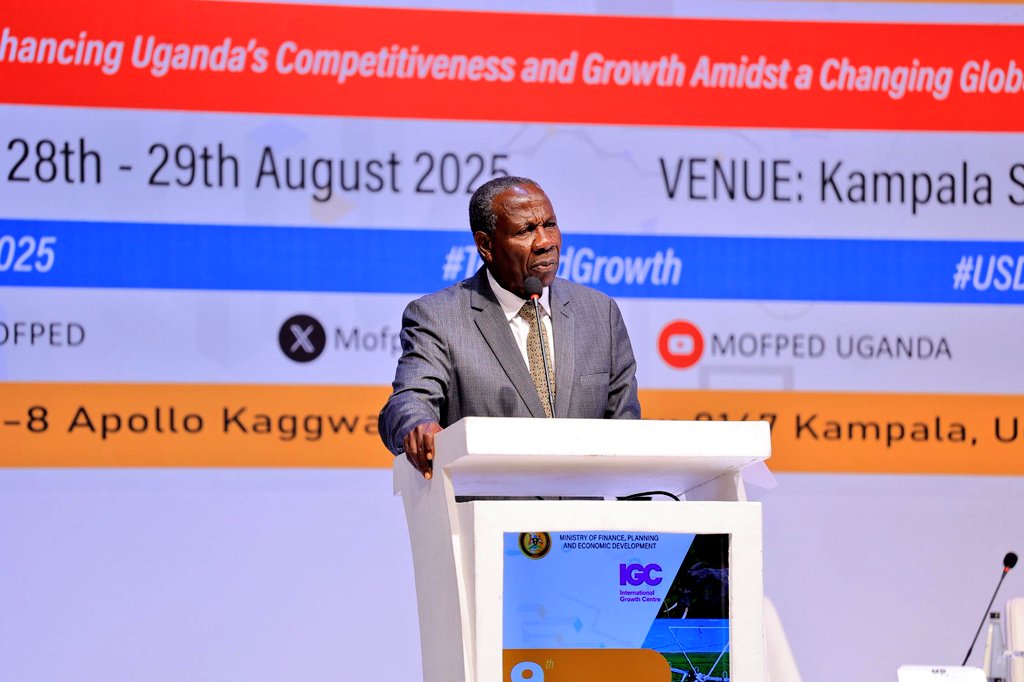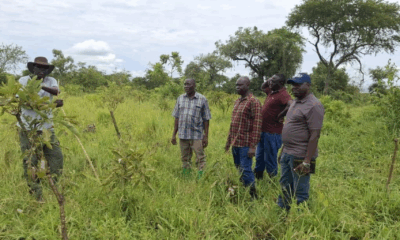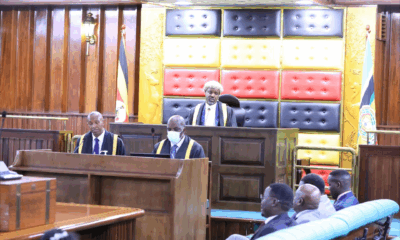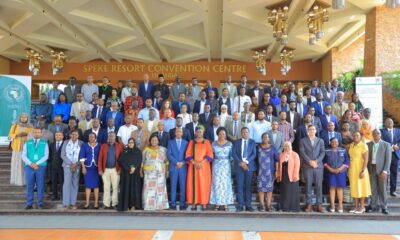Economy
Finance Minister Kasaija Opens 9th Economic Growth Forum, Calls for Discipline, Innovation, and Private Sector-Led Growth
Minister of Finance, Planning and Economic Development Matia Kasaija has urged Ugandans to remain disciplined, practical, and forward-looking in the face of global and domestic economic challenges, as the country positions itself to achieve its ambitious tenfold growth strategy. He made the remarks while officially opening the 9th Economic Growth Forum (EGF) at Kampala Serena Hotel on Thursday.
Kasaija noted that the discussions at this year’s forum come at a critical moment of unprecedented global change. He pointed out that shifting geopolitics, tightening financial conditions, evolving trade patterns, and the escalating impact of climate change are collectively reshaping economies worldwide, including Uganda’s.
“Despite the challenges we face—ranging from infrastructure deficits and low productivity in key sectors to youth unemployment and climate-related vulnerabilities—our direction remains clear,” he said. “With peace and stability as our foundation, and by working hard and staying focused, the challenges before us can be turned into opportunities for Uganda’s growth strategy.”
The minister emphasised that Uganda’s vision is anchored on monetising the economy, creating wealth and jobs, and propelling the country towards a $500 billion economy by 2040. He pointed to the country’s resilience, citing a 6.3% economic growth rate in the last financial year, which outpaced both regional and global averages, coupled with low inflation.
“The stability Ugandans enjoy under the leadership of H.E. the President remains our most valuable economic asset,” Kasaija stressed. “Our task is to turn that stability into money in people’s pockets through discipline, hard work, and an economy that rewards enterprise. The Government will keep the macro house in order, but it is the private sector that must drive sustainable growth, create jobs, and expand exports.”
The high-level two-day forum has drawn policymakers, economists, business leaders, and development partners under the theme of transforming Uganda’s economy in a fast-changing global landscape.
In his keynote address, Prof. Stefan Dercon, an economist from the University of Oxford, challenged Uganda to adopt bold but pragmatic strategies to unlock its growth potential, describing it as “getting Uganda’s growth genie out of the bottle in a confusing global context.” He warned that the world is entering an era of declining aid and concessional financing, and Uganda must prepare by mobilising more domestic resources.
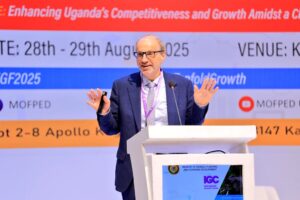
Prof. Stefan Dercon
Key recommendations highlighted at the forum include:
-
Leveraging Uganda’s oil resources while avoiding the “Dutch disease.”
-
Exercising fiscal discipline, particularly in debt management and public expenditure.
-
Expanding exports and capitalising on global trade shifts, including opportunities from the ongoing U.S.-China trade tensions.
-
Avoiding investment of oil revenues in non-tradable goods.
-
Enhancing productivity, efficiency, and industrial policy to support the tenfold growth vision.
-
Tapping into innovative financing avenues, including climate finance, to respond to global shifts.
Prof. Dercon also called for a shared national commitment to growth from Uganda’s leadership and elites. “Cool-headed management of political and economic policy leadership cannot be overemphasised,” he said, underscoring the importance of stability, consistency, and accountability in shaping long-term development.
As the 9th EGF unfolds, participants are expected to chart actionable pathways to accelerate Uganda’s structural transformation, deepen private sector participation, and ensure the country is well-positioned to thrive in the face of global economic uncertainty.
Comments



